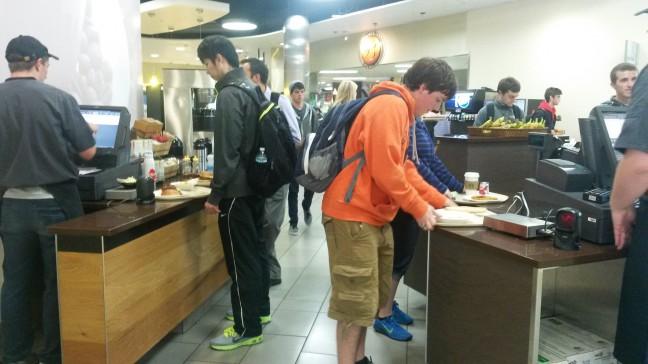If the picture of a landfill on most University of Wisconsin garbage cans did not tip you off, we are an eco-friendly campus. UW continues making strides towards becoming more ecologically friendly. A new dining hall policy is in place, so in some of campus cafeterias, getting receipts after purchasing food is optional. UW has also switched to compostable to-go boxes and making composting bins available in the residence halls.
The university has a long tradition of being a forward-thinking establishment. It has made several strides to promote stewardship in the community since enacting the We Conserve campaign in 2006. Since its conception, the campaign has eliminated 1,000 tons of trash going to landfills, saved 178 million gallons of water from being wasted and reduced utility bills by $13 million. That’s no small monetary or ecological impact!
The amount of conservation is a remarkable stride for a large institution that processes the waste from tens of thousands of people. The impact that the university has made protecting the environment is a Bigfoot-sized print through significant ways such as We Conserve, and small ways such as labeling trash “landfill” to raise awareness of where that garbage is going to be.
However, there is one area that UW is seriously lacking conservation in: food supply. 842 million people worldwide do not have enough food and 49 million Americans do not receive adequate nutrition. Nearly 70,000 people in Wisconsin alone rely on food banks to feed their families. In the tall shadow of these numbers, the amount of food that this university throws away every day is sickening. While the dining halls provide compostable carry out boxes and compost all preparation and postprandial scraps left on trays, they simply throw out all the food left in the bins of the serving area. Entirely edible food goes straight into the garbage because it is state property, and any other use is deemed as “stealing from the state.”
This is unacceptable for such a progressive university. While I can understand UW not wanting to simply give the food away for free to students at the end of the day, there are shelters in Madison and the surrounding area that could benefit from receiving the leftovers of the nutritious meals that the dining hall prepares. This would allow them to spend their very limited budget, state-funded or otherwise, on other pressing services or repairs they need for operation. If anything, this is just the reallocation of state funds to an equally worthy cause. New York University has a program to feed the hungry and homeless in their area, as does Penn State. Why not UW?
We dream-filled students talk about solving the problems of today, and we have that opportunity right now, in our community. Why not take action? Why allow waste to be created when there is a solution available? We need to completely embody the idea of “Be the WE;” being responsible and proactive about what happens in our community. We need to be the ones that eliminate injustice and give others some food for thought.
Abigail Zemach (zemach














